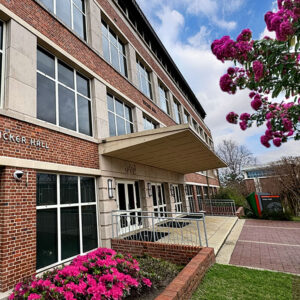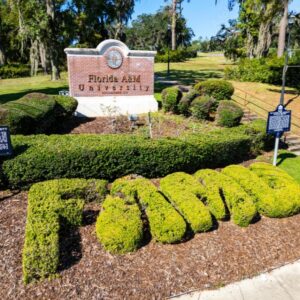Activism | January 23rd, 2023
Nicaragua Clinical: FAMU Pre-Medical Program Goes Abroad
By: Nina Shortt
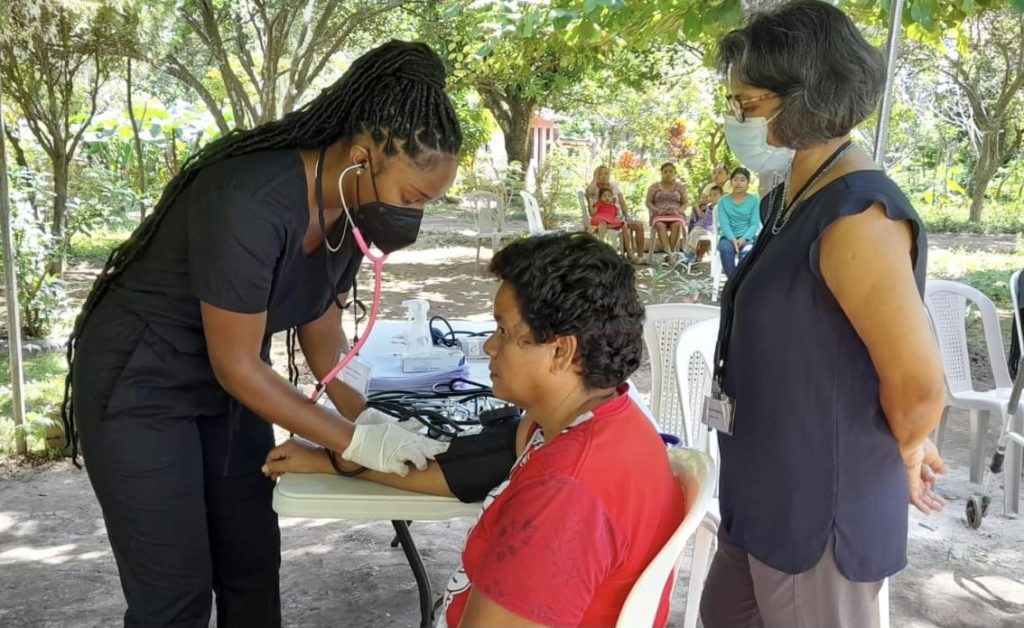
Over winter break, 26 Florida A&M University (FAMU) Pre-medical students received a taste of what their careers have in store by participating in an 8-day clinical in Nicaragua.
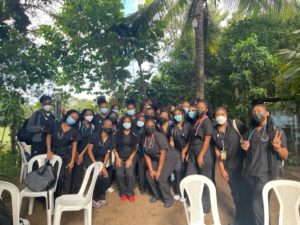
The FAMU Pre-medical Program was the first University to collaborate with Synaptic Communities. Photo courtesy: Paige Hunter
The on-campus program, FAMU Pre-Medical Program, was presented with this life-changing opportunity through their advisor, Fran Scott. Dr.Casear Antonio Boza, the co-founder and president of a non-profit organization called Synaptic Communities, approached Scott about talking to students about the opportunities held within the Nicaragua Clinical.
Synaptic Communities provides medical training services to students who want to define their vocation while also providing at-risk, under-resourced communities in Nicaragua with free public health, medical, dental, and veterinary attention.
The non-profit organization focuses on developing knowledge exchange, a beneficial exchange in which students receive advanced education training with Nicaraguan education and healthcare professionals.
Once the presentation on the opportunities in the clinical was over, students asked when they could go explore and take their education to new heights.
These 26 driven and determined students took eight months to raise enough money for each one of them to go to Nicaragua. They started a group and individual GoFundMe’s, held car washes in the summer, and did dorm storms during the semester selling snacks to raise money that could contribute to their goal.
The FAMU Pre-Medical Program’s goal was to make an impact in the Nicaraguan community and gain an authentic experience within their interested fields, and they did just that.
They raised enough money to cover hotels, private local travel expenses to/from clinics, clinic day expenses, hired personnel, and more.
Once the program could solidify their finances, they began preparing and packing for what their journey had in store.
Paige Hunter, a third-year health science general pre-med scholar from Bronx, New York, said, “I’ve never been out of the country, so I was very excited and a little nervous. I was more excited just going through the process, getting my passport, having my suitcase checked, and just getting started with what we came here for.”
After their arrival and settling into hotels, a seminar was held introducing the culture of Nicaragua, the communities they’ll be helping, and meeting the SC staff. The seminar provided students with documentation of pathologies, treatments, and practice exercises for assisting people.
The work truly began the day after the seminar, Hunter explained, working from 8 am to 4 pm with an interrupter checking vitals, signs, or symptoms before prescribing them medicine or taking further action for four days. Students were able to have hands-on training asking questions and having professional guidance while determining what they believe is the cause of discomfort to patients.
As Hunter was helping a patient, one case opened her eyes to what families in low-income communities had to endure. A 45-year-old patient had back pain because he worked in a sugarcane factory. The pesticides have affected his body for over ten years, causing kidney failure. They gave him medicine and proper care and asked him to please take time off, but he refused. The man explained to Hunter and other physicians that he couldn’t stop working because is the only one who could only provide for his family so they could stay afloat.
“It was heartbreaking to see because their income is not fitting for their lifestyle,” Hunter said. “We take a lot of things for granted. We have all these jobs that are not putting us in danger as much, but they have to be working to provide for themselves.”
TaKyra Johnson, third-year health science pre-physical therapy scholar from Villa Rica, Georgia, explains how these eye-opening moments are something students learn in a class.
“This experience reinforced why I want to go into healthcare. It gets frustrating because we have a long journey ahead of us, but it gives me a chance to see if what I’m doing will pay off,” Johnson said. “This was so much bigger than just ourselves. We were directly impacting people’s lives.”
This opportunity in Nicaragua allowed students to understand and gain a grasp of why they love this field and why the bond around them will always be held close.
“I think with our major, we don’t always have the time to sit down and commune with each other because we feel like we have to figure it out this route, but this experience forced us to get out of our comfort zones and talk to people within our major,” said Georian Smith, a fourth-year biology pre-med scholar from Orlando, Florida, who served as a liaison. “We have a bond because of this experience. This experience was unforgettable.”
Two hundred thirty-six people’s lives were helped, treated, and changed for the better because of students that desire to change the world.
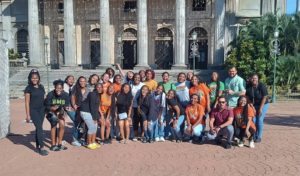
Follow the FAMU Pre-Medical program on Instagram @famu_premedicalprogram for more opportunities. They are currently discussing and looking into participating in another clinical in Jamaica.




